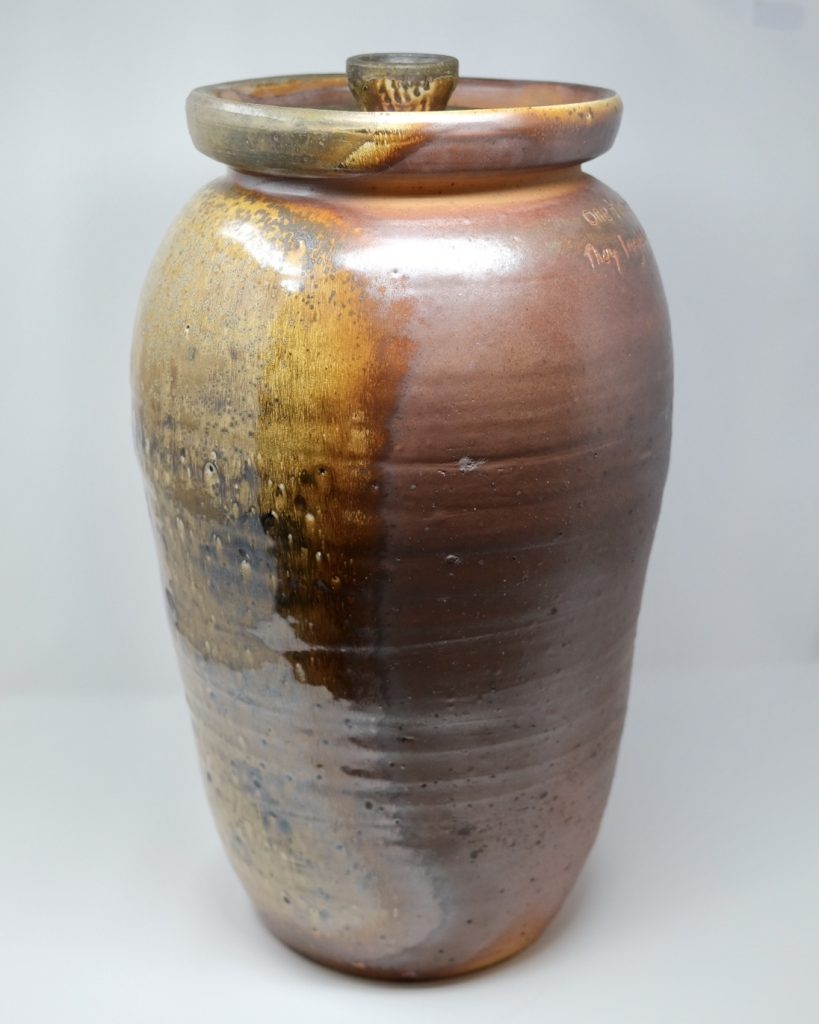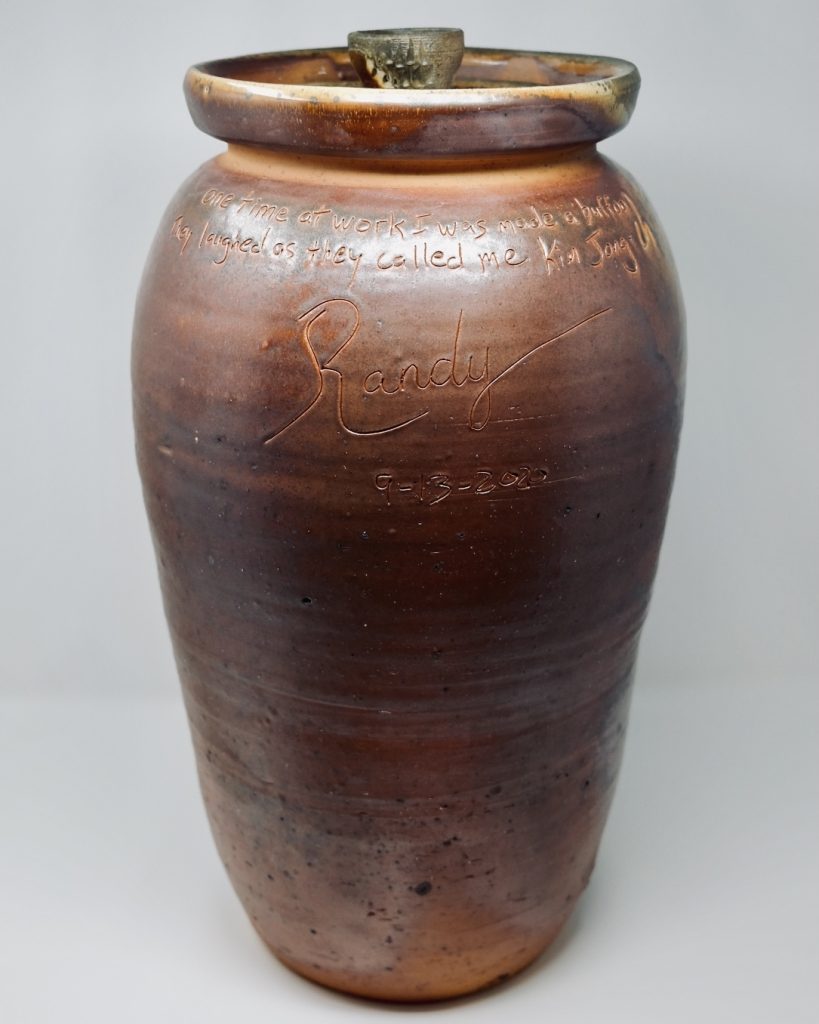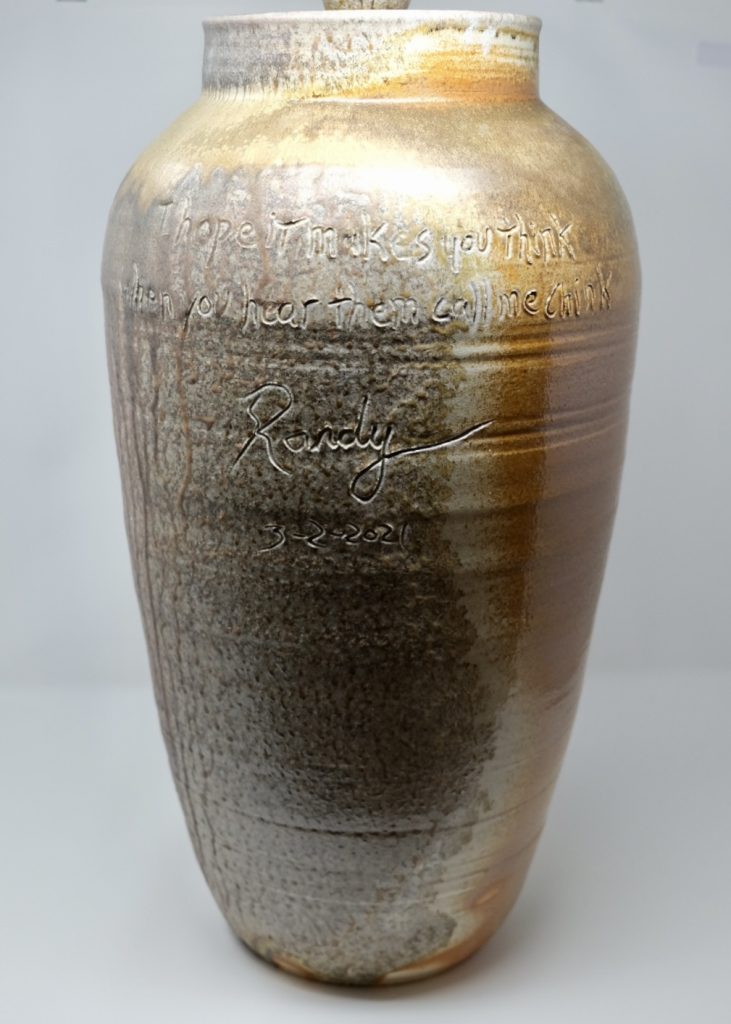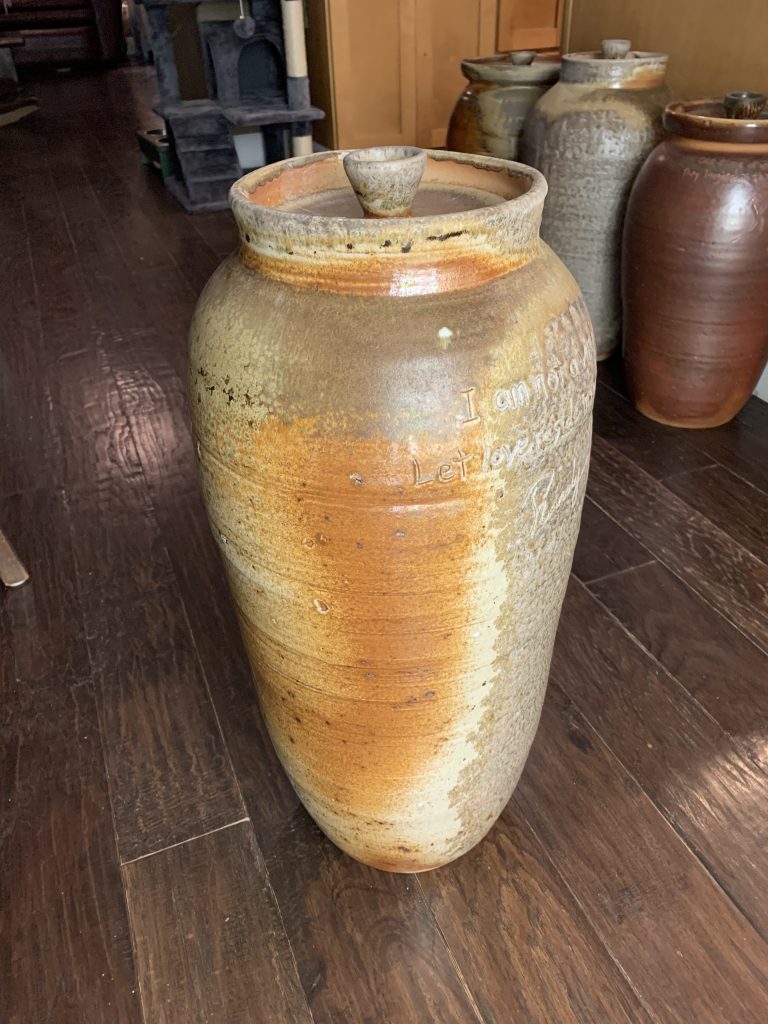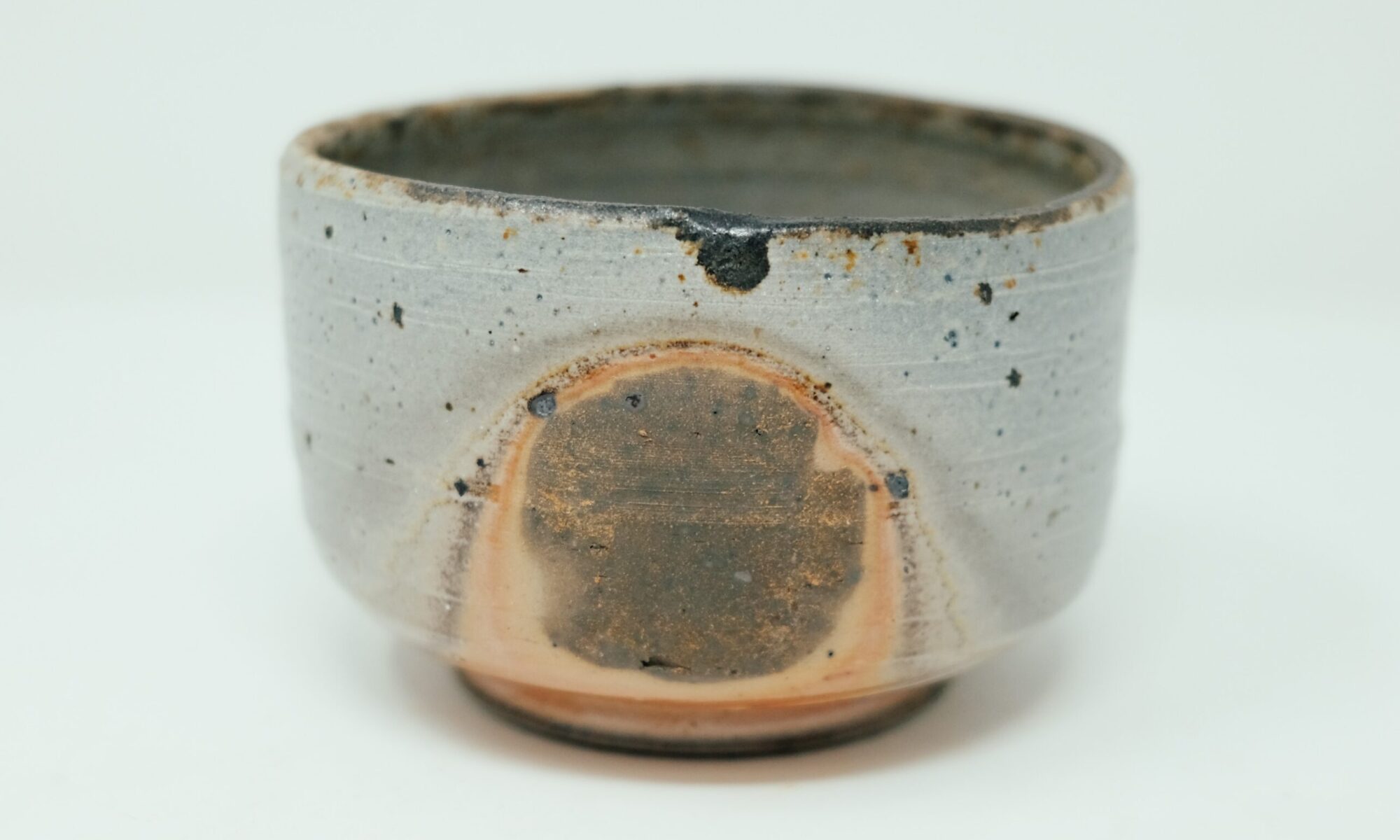Project Narrative:
When I was ten years old, I stepped up to the plate during a Little League game. From the opposing dugout—and then the stands—I heard kids and parents singing the Toyota theme song, followed by jeers of “Jap” and other slurs. I swung at the pitch and hit a double. When I reached second base, I looked back at the crowd and gave them a defiant double middle finger. “You’re outta here!” the umpire shouted. I was ejected for unsportsmanlike conduct. From the bleachers, my Japanese mother sat quietly and watched it all unfold.
That moment was one of many throughout my life where I encountered racism in the United States. I often had to choose between silence and confrontation. Too often, choosing to stand up—whether for myself or for my mother—came with a price: taunting, beatings, and injustice.
I took my first pottery class in 1986 at the American School in Japan. Around the same time, I visited an anagama kiln. I was captivated—not only by the monumental effort required to fire it, but by the transformation it brought to the work inside. I knew then that one day I would fire my own work in an anagama, blending my Japanese heritage with my passion for ceramics.
Ten years later, after moving to Oregon, I met my mentor Richard Rowland—an internationally recognized potter who built and fires an anagama on the North Oregon Coast. For the past 25 years, I’ve worked alongside Richard at the Astoria Dragon Kiln. Today, I have my own wood-fire kiln and studio in Naselle, Washington, where I pursue ceramics full time.
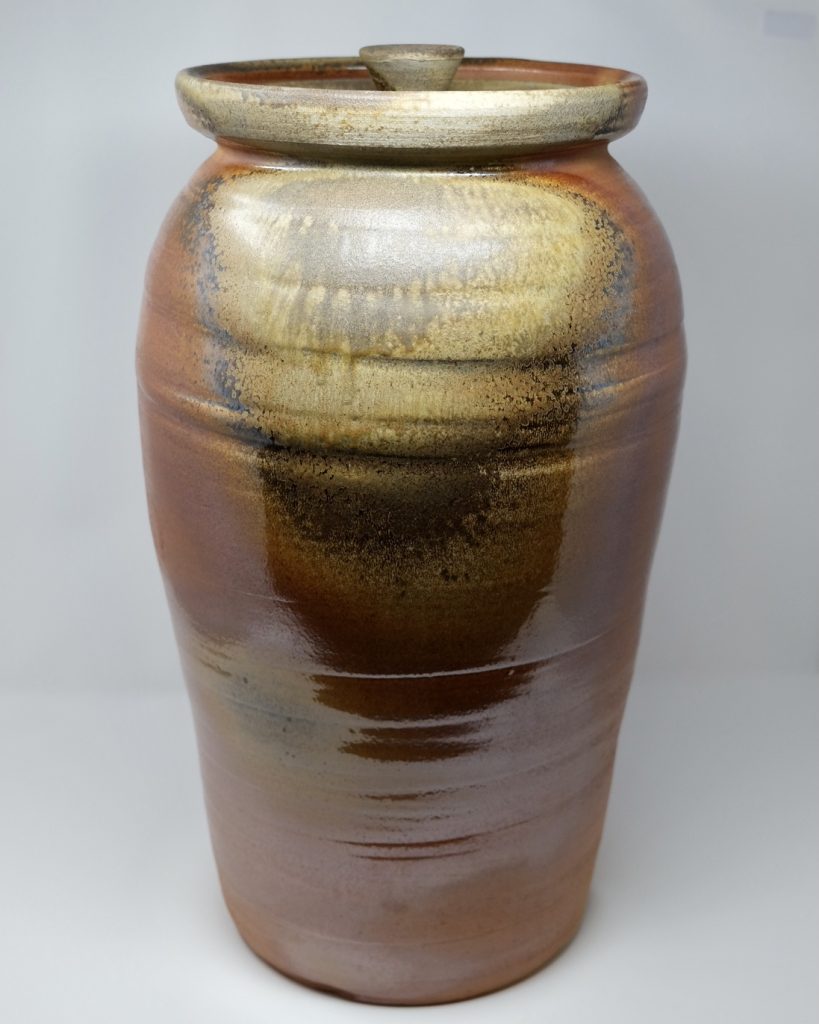
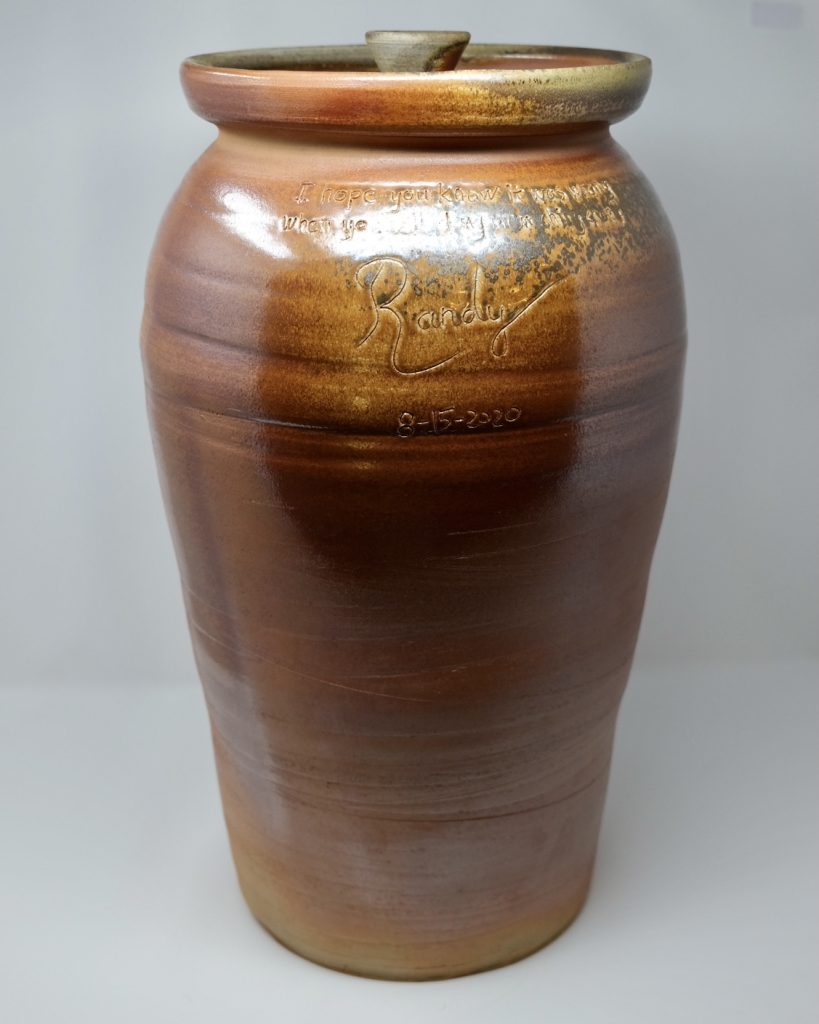
This jar is part of a series inspired by 19th-century potter David Drake, an enslaved Black artist who inscribed his large storage jars with poems, statements, and his name—an act of resistance and authorship. One of his verses reads:
“I wonder where is all my relations – Friendship to all and every nation.”
My jars echo Drake’s legacy by blending form, fire, and inscribed verse. They speak to my own story: growing up as a biracial Japanese American, experiencing racism, and finding a voice in clay. The inscriptions on this jar reads:
“I hope you know it was wrong when you called my mom ching chong.”
Each piece in this series is a personal act of protest, remembrance, and healing. By inscribing my own prose onto these large, anagama-fired jars, I’m confronting injustice, honoring those who came before me, and creating space for reflection. The work is both personal and political. In uncertain times, the clarity is in the clay.
If you are interested in acquiring one of these jars, please contact me directly at hafupotter@gmail.com.
